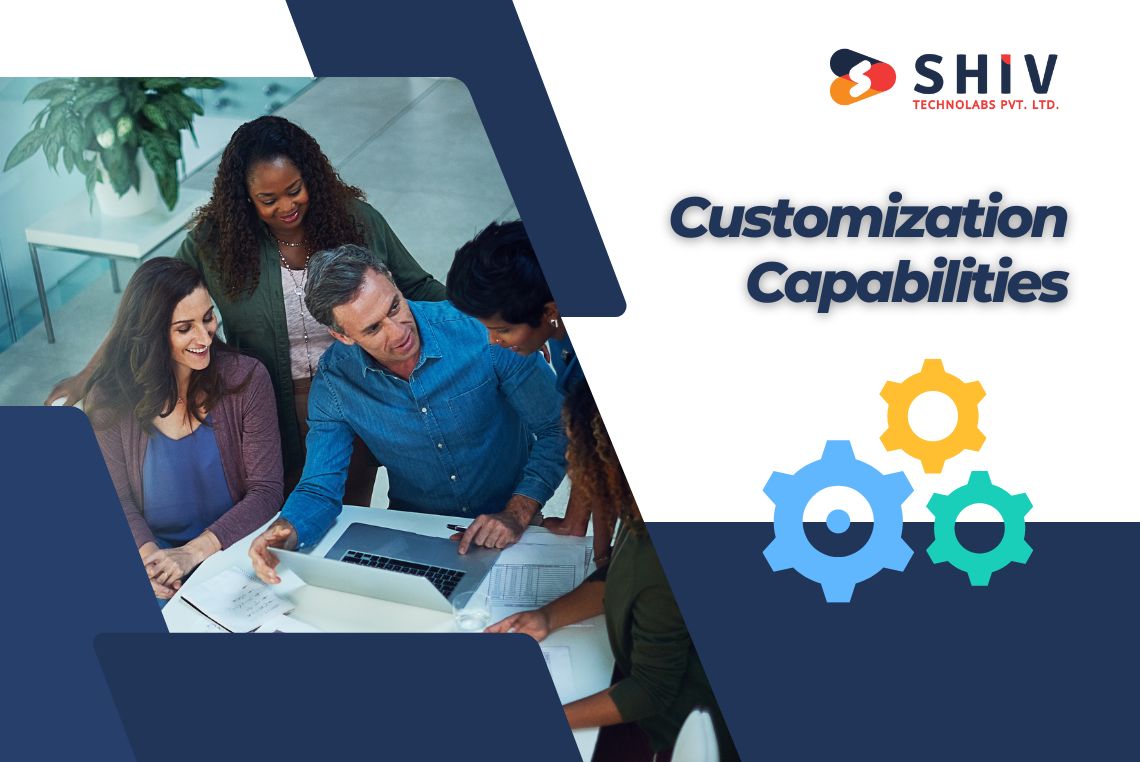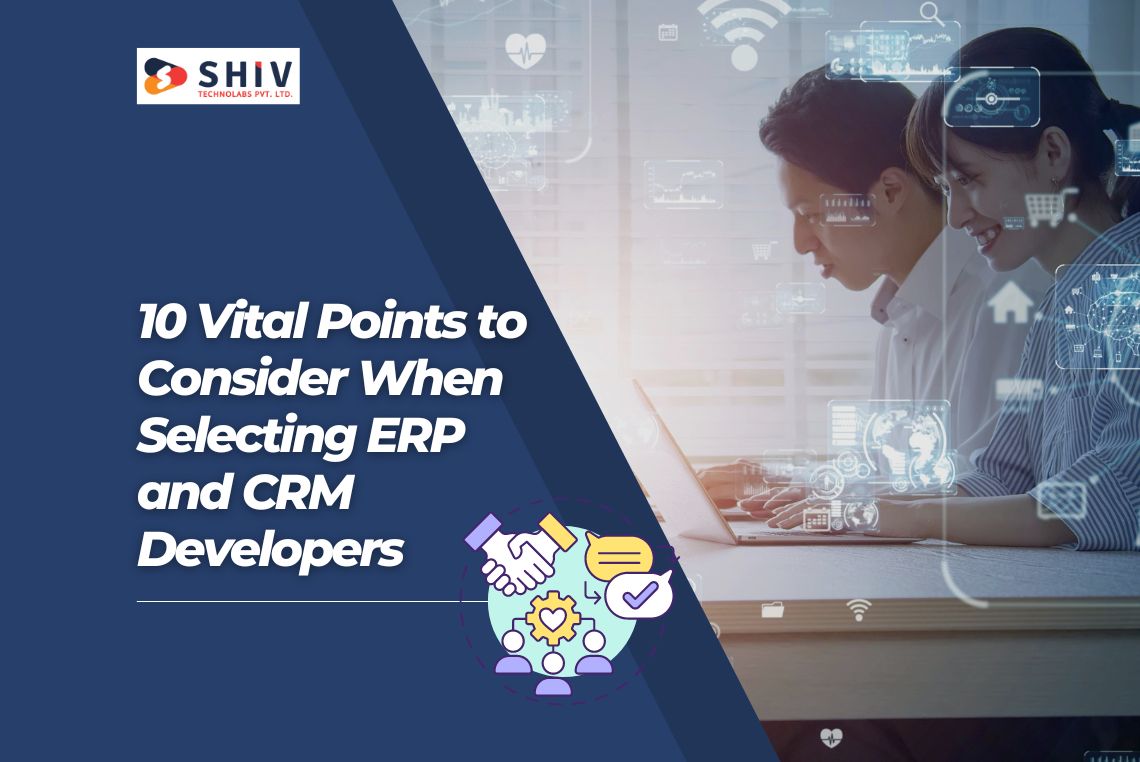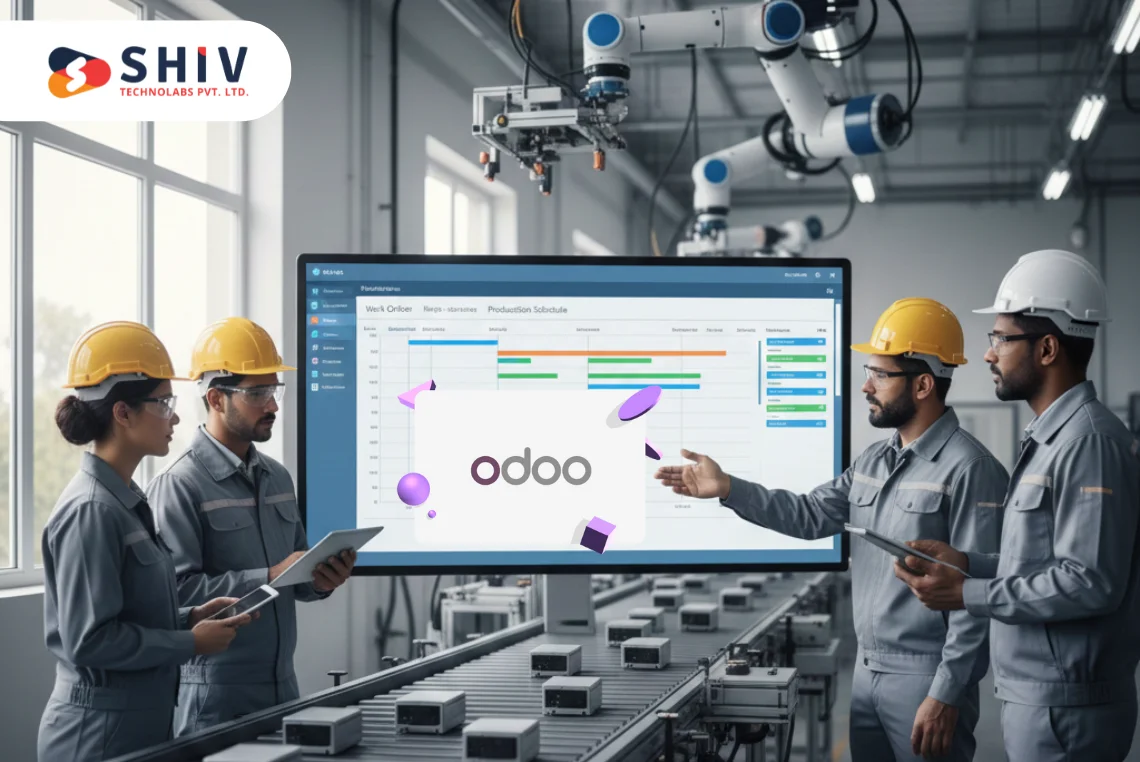Table of Contents
Enterprise Resource Planning (ERP) and Customer Relationship Management (CRM) systems have become indispensable tools for businesses looking to streamline operations and improve customer engagement. In a tech-driven market like Singapore, where efficiency and innovation are critical for success, choosing the right ERP and CRM developers can make all the difference. With numerous development agencies offering ERP and CRM services, selecting the best one requires careful consideration of multiple factors.
Here, we discuss 10 vital points to consider when hiring ERP and CRM developers in Singapore, followed by answers to five frequently asked questions.
1. Local Expertise and Market Understanding

One of the first factors to consider when hiring ERP and CRM developers in Singapore is their familiarity with the local market and business environment. Singapore’s regulatory requirements, business landscape, and cultural nuances may differ from those of other countries. Developers with prior experience in the Singaporean market can offer tailored solutions that align with local standards and practices.
A developer familiar with local business needs will also have a better understanding of the type of ERP and CRM systems that fit businesses in sectors such as finance, retail, logistics, and manufacturing. Choosing a team with this market insight ensures that your ERP and CRM systems are not only technically sound but also relevant to the specific requirements of Singaporean businesses.
2. Technical Skills and Experience
When it comes to ERP and CRM systems, the technical expertise of developers is a non-negotiable aspect. In Singapore, where businesses often rely on systems like Microsoft Dynamics, Oracle, SAP, and Salesforce, it’s essential that the developers you hire have a solid background in these platforms. Ask for a portfolio of past projects and assess the developer’s proficiency in these technologies.
Apart from the platform itself, developers should be well-versed in integration tools, API development, database management, and cloud-based technologies. ERP and CRM systems often need to integrate with third-party applications such as e-commerce platforms, payment gateways, and accounting software, so the developer’s experience with integrations is key.
3. Customization Capabilities

Every business in Singapore operates uniquely, and the ability to customize ERP and CRM systems is often required to meet these diverse needs. Off-the-shelf solutions might not provide the flexibility to support specific workflows, custom reporting, or other unique business processes.
When evaluating developers, ensure that they have a strong understanding of customization, including modifying standard modules, creating custom fields, and developing bespoke dashboards. They should be capable of making your ERP and CRM systems flexible enough to accommodate future business growth without compromising on performance or stability.
4. Post-Implementation Support
ERP and CRM projects do not end with the system’s launch. Continuous support and maintenance are essential to keeping your system up-to-date, secure, and aligned with your evolving business needs. This is particularly true for companies in Singapore, where competition drives businesses to stay at the forefront of technology.
Before hiring, confirm whether the development agency offers long-term support packages. You’ll need developers who can provide updates, bug fixes, and even new feature additions as your business grows. The right development agency should be your long-term partner, not just a one-time vendor.
5. Project Management Approach
ERP and CRM projects often require working with cross-functional teams, including IT, finance, marketing, and operations. A clear and well-defined project management approach is crucial for ensuring that everyone involved in the project is aligned.
A good development team should employ industry-standard project management methodologies, such as Agile or Scrum. These methods allow for incremental progress, regular updates, and adaptability. Ask prospective developers about their project management practices and ensure they have a transparent process for handling deadlines, task prioritization, and resource allocation.
6. Security and Data Privacy Compliance
Given the sensitive nature of the data handled by ERP and CRM systems—financial records, customer information, business operations—it is vital that security and data privacy are at the forefront of any development effort. This is especially critical in Singapore, where businesses must adhere to the Personal Data Protection Act (PDPA).
The ERP and CRM development team you hire should have a robust understanding of cybersecurity best practices, such as data encryption, role-based access control, and secure data storage. They should also have experience ensuring compliance with data privacy laws like PDPA, ensuring that your systems are secure from data breaches and unauthorized access.
7. Cost and Budget Considerations
ERP and CRM systems represent a significant investment for businesses, both in terms of time and money. In Singapore, development costs can vary significantly depending on the complexity of the project and the level of customization required. It’s essential to have a clear understanding of the total cost of ownership, which includes not just development but also licensing, support, and future scaling needs.
When negotiating with developers, ask for a detailed breakdown of costs, including licensing fees, customization, and post-launch support. Ensure that their pricing aligns with your budget and that there are no hidden costs that may affect your finances later on.
8. Industry Knowledge
Different industries in Singapore—ranging from logistics to retail, and healthcare to finance—have different ERP and CRM needs. For instance, a retail business might need a CRM system that handles customer loyalty programs, while a manufacturing firm might need an ERP system that tracks inventory and production cycles.
Developers with industry-specific knowledge can offer tailored solutions that address the particular challenges your business faces. For example, an ERP system developed for a logistics firm might need to integrate closely with warehouse management systems, while a CRM solution for a healthcare provider should have strict data privacy controls.
9. Timeframe and Availability
Time is a crucial factor in ERP and CRM development projects. Businesses in Singapore, known for their fast-paced and competitive nature, can’t afford to wait too long for a project to be completed. Be clear about your project timelines and ask the developers how they plan to manage deadlines.
Evaluate whether the developers you’re considering have the bandwidth to commit to your project, especially if they are handling multiple projects at once. Make sure they can deliver within your desired timeframe without sacrificing quality.
10. Company Culture and Communication Skills
Lastly, the ERP and CRM development agency you choose should be a good cultural fit for your company. You’ll be working closely with them, so it’s important that their work style and values align with your organization’s. Clear communication is crucial, as you’ll need regular updates, feedback, and collaboration throughout the project lifecycle.
In Singapore’s multicultural work environment, strong communication skills are vital to bridge potential cultural or language barriers. The agency should be able to explain technical concepts in an understandable way and work seamlessly with both technical and non-technical stakeholders within your company.
# Popular FAQs on Hiring ERP and CRM Developers in Singapore
1. Why should I hire dedicated ERP and CRM developers instead of using off-the-shelf solutions?
While off-the-shelf solutions can work for some businesses, they often lack the flexibility to adapt to specific business needs. Hiring dedicated ERP and CRM developers allows for customization and tailoring of the system, making it a better fit for your business processes, scalability, and long-term growth.
2. What skills should I look for when hiring ERP and CRM developers?
When hiring developers, look for expertise in platforms such as SAP, Microsoft Dynamics, or Salesforce. The developer should also have strong integration skills, experience with database management, and knowledge of cloud technologies. Familiarity with local regulations, such as Singapore’s PDPA, is also important.
3. How long does it take to develop an ERP or CRM system?
The development timeline depends on the complexity of the system and the level of customization needed. For a basic system, development can take several months. More complex systems that require significant customization may take six months to a year or longer.
4. How can I ensure my ERP or CRM system is secure?
Security should be a priority when developing ERP and CRM systems. Developers should implement data encryption, role-based access control, and regular security audits. Ensure that they are knowledgeable about data privacy regulations in Singapore, such as the PDPA, to safeguard sensitive business and customer data.
5. What is the cost of hiring an ERP or CRM development agency in Singapore?
The cost of hiring an ERP or CRM development agency can vary based on the project’s complexity and the level of customization required. It’s essential to have a detailed discussion about costs upfront, including development, licensing, and ongoing support fees.
Conclusion
In Singapore’s competitive business environment, choosing the right ERP and CRM development agency is critical for success. By focusing on factors such as local market expertise, technical skills, security, customization capabilities, and long-term support, you can make an informed decision when hiring dedicated ERP & CRM developers.
At Shiv Technolabs, we specialize in providing tailored ERP and CRM solutions that meet the unique needs of businesses in Singapore. Whether you’re looking to hire dedicated ERP & CRM developers or seeking a reliable ERP & CRM development agency, our team is committed to delivering high-performance, secure, and scalable solutions. Let us help you transform your business operations with expert development services.




















